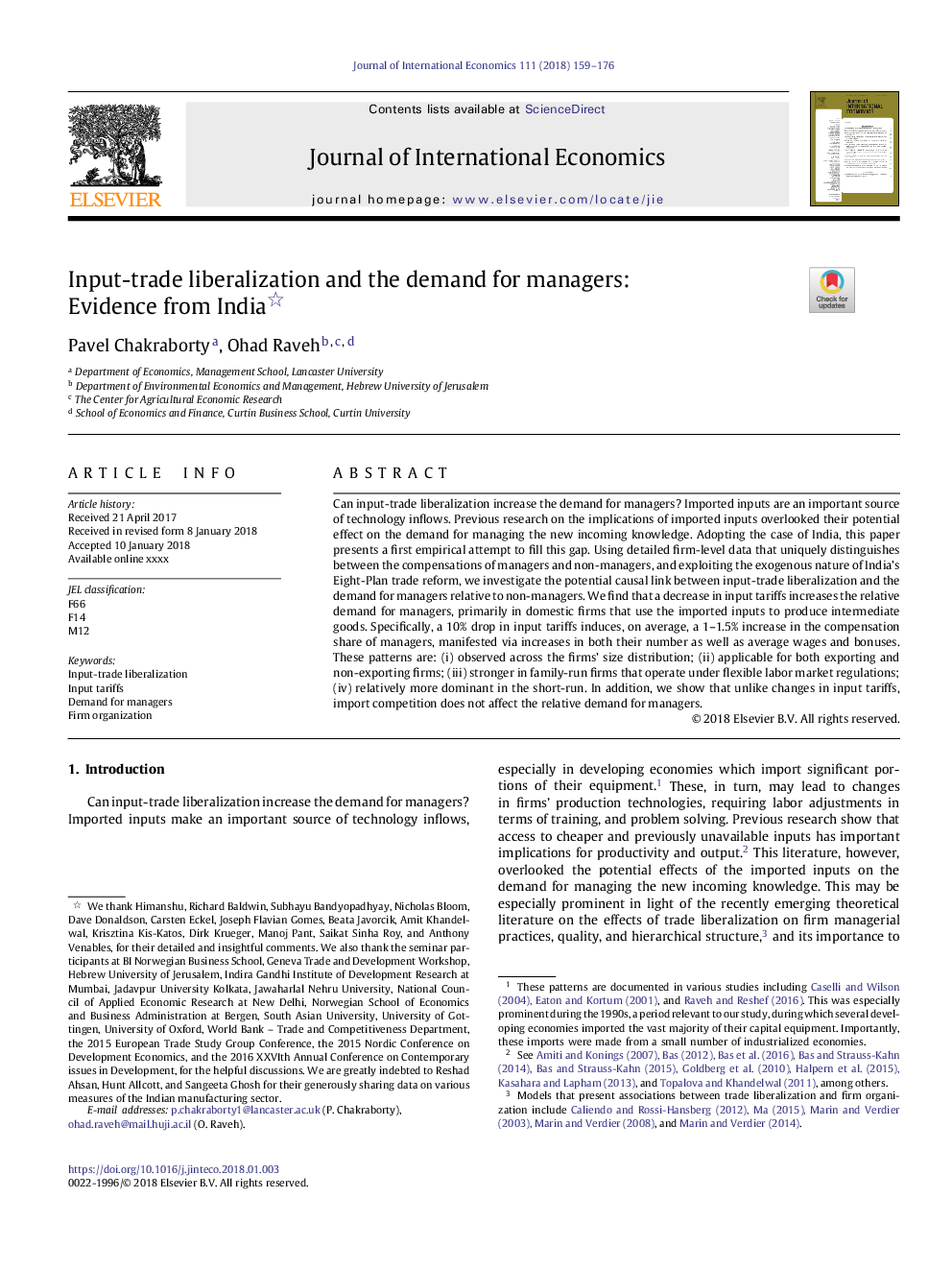| Article ID | Journal | Published Year | Pages | File Type |
|---|---|---|---|---|
| 7363918 | Journal of International Economics | 2018 | 18 Pages |
Abstract
Can input-trade liberalization increase the demand for managers? Imported inputs are an important source of technology inflows. Previous research on the implications of imported inputs overlooked their potential effect on the demand for managing the new incoming knowledge. Adopting the case of India, this paper presents a first empirical attempt to fill this gap. Using detailed firm-level data that uniquely distinguishes between the compensations of managers and non-managers, and exploiting the exogenous nature of India's Eight-Plan trade reform, we investigate the potential causal link between input-trade liberalization and the demand for managers relative to non-managers. We find that a decrease in input tariffs increases the relative demand for managers, primarily in domestic firms that use the imported inputs to produce intermediate goods. Specifically, a 10% drop in input tariffs induces, on average, a 1-1.5% increase in the compensation share of managers, manifested via increases in both their number as well as average wages and bonuses. These patterns are: (i) observed across the firms' size distribution; (ii) applicable for both exporting and non-exporting firms; (iii) stronger in family-run firms that operate under flexible labor market regulations; (iv) relatively more dominant in the short-run. In addition, we show that unlike changes in input tariffs, import competition does not affect the relative demand for managers.
Keywords
Related Topics
Social Sciences and Humanities
Economics, Econometrics and Finance
Economics and Econometrics
Authors
Pavel Chakraborty, Ohad Raveh,
